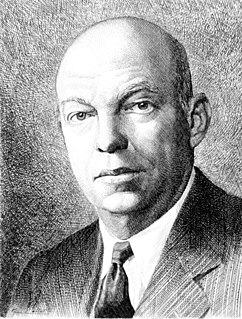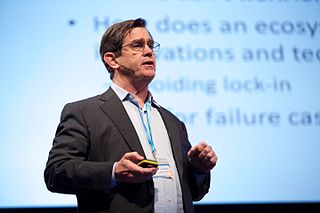A Quote by John Muir
I bade adieu to mechanical inventions, determined to devote the rest of my life to the study of the inventions of God.
Quote Topics
Related Quotes
For people who make inventions, whether they make scientific inventions or artistic inventions, they're driven by pretty much the same thing. It's some mistrust from somebody saying it couldn't be a certain way, and overthrowing that. But that can happen at any point in history, at any time you come along. It doesn't get better or worse because you're born in this era or that era - I think it's more individualistic. It comes from within, you know, it's an internal thing.
Although human ingenuity may devise various inventions which, by the help of various instruments, answer to one and the same purpose, yet will it never discover any inventions more beautiful, more simple or more practical than those of nature, because in her inventions there is nothing lacking and nothing superfluous; and she makes use of no counterpoise when she constructs the limbs of animals in such a way as to correspond to the motion of their bodies, but she puts into them the soul of the body.
Some of the most innocuous inventions have proven earth-shattering, with reverberations felt around the planet. The Internet is the poster child for disruptive technology, but even such inventions as Amazon's Kindle and Apple's iPod have rocked their respective industries by changing how we entertain ourselves.
Anyone who has had actual contact with the making of the inventions that built the radio art knows that these inventions have been the product of experiment and work based on physical reasoning, rather than on the mathematicians' calculations and formulae. Precisely the opposite impression is obtained from many of our present day text books and publications.
For one thing, there are many "inventions" that are not patentable. The "inventor" of the supermarket, for example, conferred great benefits on his fellowmen for which he could not charge them. Insofar as the same kind of ability is required for the one kind of invention as for the other, the existence of patents tends to divert activity to patentable inventions.
In a world of widely distributed knowledge, companies cannot afford to rely entirely on their own research, but should instead buy or license processes or inventions (i.e. patents) from other companies. In addition, internal inventions not being used in a firm’s business should be taken outside the company.







































